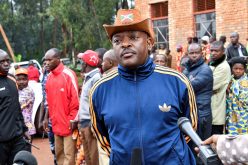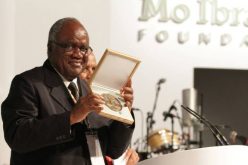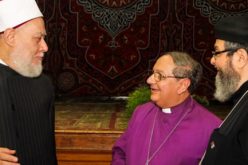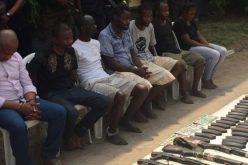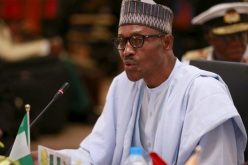The New Times – Mushaka Catholic church in Rusizi District has a new approach of reconciling members of its congregation who perpetrators and survivors of the 1994Genocide against Tutsi.
This unique method that has been lauded by national leaders, including the National Unity and Reconciliation Commission, involves a lengthy process undertaken using actions instead of verbal apologies.
It all started in 2007, when the then parish priest, Obald Rugwizangoga, observed that it was not right for former inmates released under the presidential clemency to return to the church and continue receiving Holy Communion without first apologising for their deeds and seeking genuine reconciliation.
“He understood that it is not fair that inmates being released under the presidential clemency return to the Church and keep receiving without [reconciling with the offended families],” said the current parish priest, Fr Jean Eric Nzamwita. He succeeded Rugwizangonga as senior priest in 2010 and sought to continue this new approach to reconciliation.
Rugwizangoga’s style took shape in 2008 when he used to preach to inmates in Kamembe prison about the need for apology and pardon. He came up with some kind of course outline that includes topics such ‘Life as a God’s gift,’ ‘God’s Commandments and ‘Genocide Wounds’ to facilitate reintegration of former inmates into the church and community.
The process starts with a member of the congregation agreeing with terms and conditions such as loosing his/her rights on sacraments for six months. They would also be required to agree to report to church for lecture every Saturday morning for the same period.
At the same time, a former inmate would be asked to meet to interact with Genocide survivors in their daily life.
“One starts by taking a hoe to go and dig in a Genocide survivors’ garden, so as to prompt some dialogue,” said Nzamwita.
“We have seen different reactions-sometimes a survivor will insult a perpetuator but we advise him/her to keep going until a survivor accepts the gesture”.
The church, which plays a mediation role, gives the two parties enough time to soften the ground for reconciliation.
It worked in the case of Gratien Nyaminani who apologised for taking part in the killing of Vedaste Kabera, Bernadette Mukakabera’s husband who survived the Genocide in Nzahaha sector.
“Whenever I went to my garden, I would find that an unknown person had cleared the land. It happened three times until one day when I found Nyaminani working. He told me that he did not know how else he could apologise other than that.”
The mother of five pardoned the killer of her husband in 2005, and they resumed good neighborliness. Mukakabera’s son later married Nyaminani’s daughter.
When the course is about to conclude, the church brings in Genocide survivors repented former inmates together, and are given lessons on apology and pardon.
Then a graduation ceremony takes place to indicate that neighbors torn apart by events of 1994 have come together once again.
So far, six groups have gone through the trainings that involved over 148 former inmates and the same number of survivors. Nyaminani and Mukakabera belong to the first group.
“We have achieved 75.5 percent of our objective,” says Nzamwita.
People have been impressed by the initiative. They include the First Lady, Jeannette Kagame, who, during celebrations to mark 50 years of the church, congratulated the efforts towards unity and reconciliation. She donated a car to facilitate group visits.
Lessons to other churches:
Jean Baptiste Habyarimana, the Executive Secretary of the National Unity and Reconciliation Commission said: “The initiative is unique and the church should recommend it to other parishes”.
He said reconciliation is better understood coming from a church leader and the Mushaka initiative supplements Gacaca courts because it helps perpetrators reach out to families they offended and apologise, not only with words, but also in deeds.
Habyarimana however noted that other parishes across the country also have their own approaches, which he said are also commendable.
The commission supports them with training and counseling, so that if any conflict arises they can resolve it peacefully.
Outside the church, other initiatives have also paid off, and the commission has been helping by rewarding such efforts for the last three years.
Ubutwari bwo Kubaho (courage of life) from Huye District in Southern Province that brings together former inmates, widows and survivors, took the award in 2011, while Inyenyeri (The stars) a cooperative in Rubavu district, Western province was rewarded in 2012.
Last year, a Rwf 1 million award went to Imyumvire Myiza (good mindset), a farmers’ cooperative from Ngororero District, Western Province for bringing together former militiamen from DR Congo, genocide survivors and former inmates.


